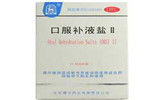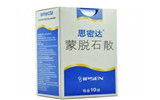Experts explain several doubts about breastfeeding
Common Diarrhea Drugs Drug storehouse
-
Feierbao Granules Changweishi Capsules Fengliao Changweikang Tablets -
Pomegranate Jianwei Capsule Shuanghuang Xiaoyan Tablets Shushi Ganmao Granules -
Children like syrup Noon Tea Granules Berberine Hydrochloride Tablets -
Xiaoshi Jian'er Granule Baby Spleen Strengthening Powder Compound Deer Antler Wine
-
National Breastfeeding Publicity Day: Breast milk is the best food for infants 2015-05-20 11:02 -
Is Milk Powder Aluminate Harmful? 2015-05-18 10:05 -
How to avoid breast pain during lactation 2015-05-13 14:48 -
Being single too long is bad for women's breasts 2015-05-13 11:12 -
Teach you the ingredients of cold medicine 2015-05-11 17:06

Those who have read this article have also read
focusing
-
Eat, drink and play as you like: Xiancheng -
Personalization beautification I dominate: love fonts -
Practical sleep aid: I want to go to bed early -
Healthy every day: eight glasses of water every day -
Ceramic matching coloring: Cubic challenge -
Riot expression: Riot tower -
Revenge: Ninja Soul -
Kill Monsters by Crossing Obstacles: Monsters Rush -
Super power in finding jobs: carefree future -
Authoritative information push: earthquake quick report -
Wonderful Everyday: China National Geography -
Efficient and fast: one click cleaning master -
Another Kind of Funny Journey: Q Story of the Court -
Reproducing the classic of World War II: all-out war -
Chinese and Western Magic Fighting: Dream Stealing Hero -
Jumping fingers and body follow the heart: dance every day
-
Weibo Yiqi Thanksgiving Action -
2013 Donate one yuan of love and nutrition -
2013 One Foundation Public Welfare Image Festival -
China Public Welfare Platform of Water Cube -
Alibaba Public Service Advertising Competition -
Siyuan Ark disaster prevention and mitigation -
2013 Aiyou Charity Dinner -
Canon Image Public Welfare -
Poor children's book drift box project -
Ford Environmental Protection Award -
Global action to protect the rights and interests of girls -
Benz Nature Conservation Project -
Canon Hope Primary School Color Classroom -
Kraft hopes the kitchen -
Women's Foundation Mother Posting Activity -
2013 Guangzhou Auto Show
-
Gift Bag of the Age of Wulin -
Sina Privileged Gift Bag of "Demon Suppression Song" -
Devil Kingdom King's War Novice Bag -
Questioning: Snow Battle is the Ultimate Gift Bag -
Paid test code of Forbidden by Heaven -
Public Beta Luxury Gift Bag of "The Legend of the Demon Xia" -
Dahua Westward Journey 2 Public Test Gift Bag -
"Qiannv Ghost 2" Sina 1888 yuan platinum card -
The Third Sword Privileged Sina Diamond Gift Bag -
Privileged Gift Bag for Inside Test of All People's Miracles MU -
Sina customized gift package for Dragon's Gate and Tiger's General -
New Shumen Privileged Gift Bag of Xiaolang -
Role play novice card -
Shooting game novice card -
Action game novice card -
Strategy game novice card
-
[Finance] Stock market inquiry -
[Finance] Financial calculator -
[Technology] Digital product library -
[Video] The hottest movie -
[Tourism] Inquiry of domestic and foreign scenic spots -
[Child care] Child care utility library -
[Car] Model query -
[Women] cosmetics product library -
[Constellation] Constellation fortune query -
[Entertainment] Video query -
[Entertainment] TV program list -
[Education] University and college inquiry


